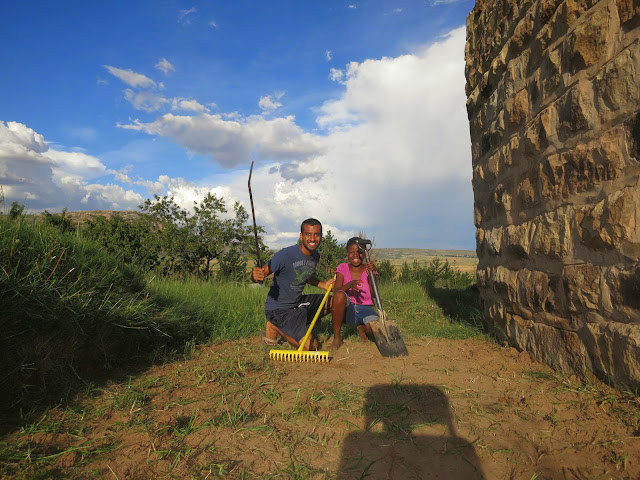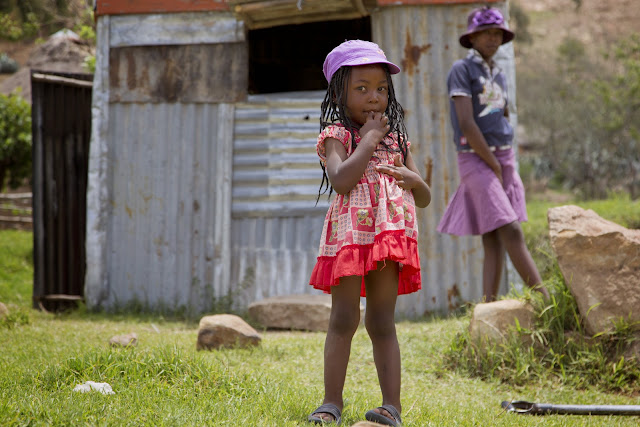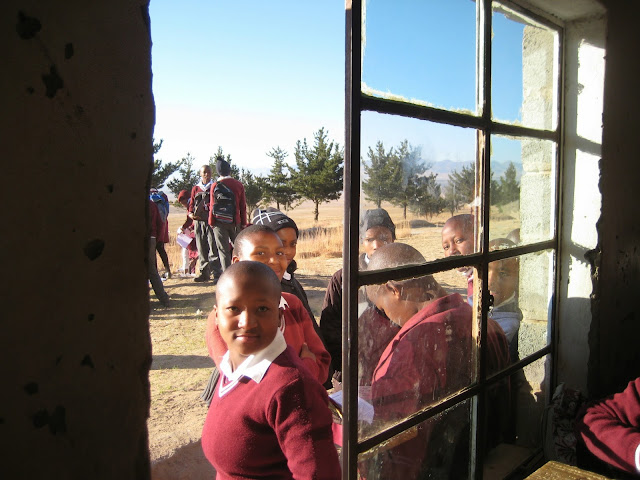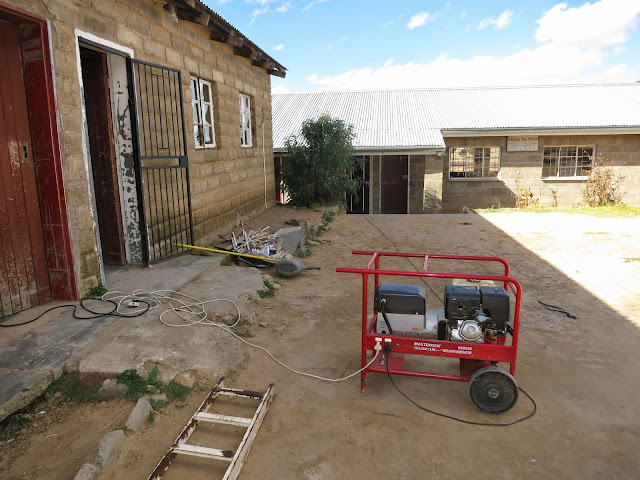As my Close of Service (COS) approaches, I can’t help but be more introspective and reflective. The Peace Corps is a two-year program and while many people may think that is too long, it honestly isn’t long enough. Most of us are now seeing the fruits of our labor in largely unexpected ways, and even seeing our projects showing strong signs of sustainability and progress.
One success is that now about once every two weeks the teachers and I eat meat together!
SEX BOOK
Along with my main goal of improving math and science education, I am entrusted to impact my community on the HIV/AIDS front. Although my school does not have a life skills time slot during our schedule, I find about five minutes every class to inform my students on various topics usually related to sex. Just the other day we had the head nurse from our Millennium Clinic visit our school and give “The Talk” and during the entire course of our awkward question and answer period, the students kept mentioning how I love to talk Life Skills.
This kid
Additionally, our library shelves have been finished and it is more or less organized and running. One day on my way back home from school I overheard a few students speaking in English and talking about Sex. I snooped a bit further and looked over their shoulders while acting like I was just on my phone. They were holding a book titled “Sex” found in our Life Skills section of our library. At that moment, I realized how three initiatives my teachers and I started actually proved in someway successful.
1) Our Library is self-sustaining. Students know that if they want science, life skills, or any books the library is available to that at all times.
2) These students were practicing English without being forced to. Last year I tried so hard to make my students speak English and met so much resistance. This year I essentially gave up, but you can still hear whispers between students encouraging each other to continue speaking English.
3) My students were no longer scared to talk about Sex freely. They weren’t inhibited or embarrassed if other teachers saw them with the book, and they were taking the books home. This means the shyness and ignorance about sex and sexually transmitted diseases is being chipped away, literally (Archer figuratively)at the grassroots level.
Before these two years started, I knew what our jobs entailed, but I had no forethought that these projects could synergistically mingle in such positive ways, and I was simply lucky enough to witness just the beginning of what seems to be pure development and progress.
Also in these two years I would have no idea that my roof would finally get fixed!
Life Skills Play
Because I am a native English speaker, I have almost automatically and willingly been adopted into our English Department. I am often asked for advice, or for help with our school debates and compositions from students or teachers.
Debate
I often feel like a walking dictionary (Beyond ironic if you know who I am). One day our English Club approached me for assistance on their Drama that would occur on our English Day Festival. I am no Shakespeare either, and therefore I simply posed the question, “What do you want it to be?” Instantaneously they said they wanted to create a Life Skills Play and I stood their quivering with excitement (Archer Phrasing). More often than not students don’t care for life skills, and definitely don’t want to advertise any sex-talk to the entire school (especially to the audience of teachers). So I posed the next question, “What if you had HIV/AIDS, what would be the first thing you do?” I proposed the topic of the drama, and then I let them come up with each step after. It was a short play, but it was an interesting way to understand their thoughts on the idea of HIV/AIDS on a more personal level. The play went as the following:
A female student has two boyfriends. One is good and one is bad. She tests at the clinic and finds out she is positive. The ausi (girl) becomes insanely depressed and confused while the nurse is telling her all will be well with medicine and counseling. The ausi ignores and seeks after her two boyfriends. She meets the bad boyfriend first who gets angry, and tells her that he can’t have HIV/AIDS because he is circumcised from the mountains, uses more than one condom, has ten sex partners who are also negative, etc. She tells him to get tested and meets the good boyfriend who is shocked, supportive, but hesitant to get close to her. She then tells her best friend who reacts the same way. The boyfriends end up drinking at the local bar and gossip to the whole school that this ausi is HIV positive, and the next day at school she is embarrassed because people are too scared to share food with her, or even sit near her. She runs home and abandons school. She then paces outside depressed and angry, and ultimately exclaims verbally her intention of suicide. The mother overhears her and calms her child. They go back to the clinic seeking counsel and medicine. The Ausi is a bit chipper and less ashamed. She then boldly goes in front of the whole school and preaches to them about her HIV positive status and encourages others to test. Everyone is then impressed and thrilled for her positive attitude and her confidence. The good boyfriend comes back and says he still loves her.
Fin
My drama folk
A pretty complex, and insightful drama essentially thought of and acted out by students who have had a lifetime of impedances to their life skills education. I felt extremely proud that they had the courage and tenacity to formulate and execute such a mature play.
Soon I will be updating on our Solar for Breakfast project and perhaps some intriguing weird fun times. Updating certain news: I did not win the blog competition, but I was fortunate and happy enough to become selected as a finalist. It did boost my blog’s readership and that was what I needed most to ensure my inceptive thoughts to roam free in the minds of a multitude of Americans. I will be leaving Lesotho Oct 10th, and will see many of you shortly. The political unrest that is currently ongoing is nothing to be startled by, and it may calm you to know I am not by any means close to the capital.
A week before the political unrest, I was on vacation eating in the capital with my cousin.
























































